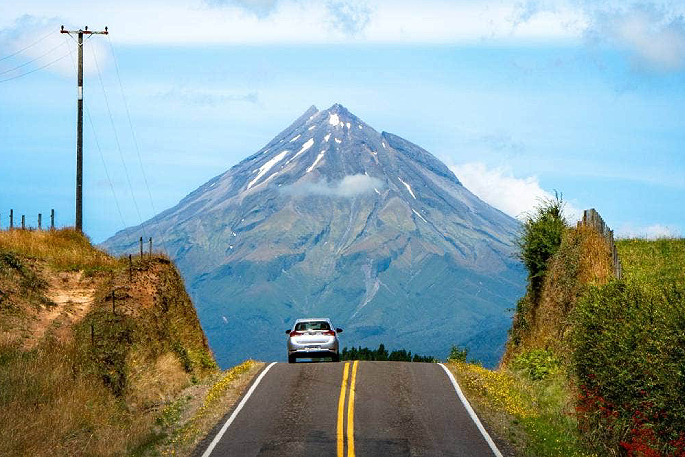Kiwis love to drive, but there are a few road rules you won’t find in the official New Zealand road code.
Most New Zealand motorists know these rules, the lore of the tarseal, and use them to stay in the good graces of fellow drivers.
For those who are less fluent in Aotearoa driving etiquette, here are a few ways you can improve your manners when on the road – and perhaps decrease the chance of witnessing road rage this summer.
Wave back
Neglecting to wave back at someone on the road when they wave at you is considered rude.
It may not seem like a big deal, but it is – whether you’re a fellow driver, or a pedestrian given leeway to cross the road.
No-one’s expecting you to put your hand out the window and wave like the King, but a few fingers lifted from your steering wheel or a cheeky shaka sign will do the trick.
Raise a forefinger to someone you don’t know, a friendly two fingers to someone you sort of know, and three or more to a good friend, or so the story goes.
It’s a sign of respect to acknowledge your fellow traveller, especially if they’ve just gone out of their way to help you.
There is one person on the road who can get away with not waving back, and that’s a traffic controller holding a stop-go sign. They’ve waved enough.
No sneaking in
If a driver allows one person to pull out and you then try to sneak in behind them, that’s a clear breach of one of the unwritten rules of Aotearoa roads.
Don’t try to sneak your way in. The person behind the original good samaritan should allow you to pull into traffic – that’s another unwritten rule – but it’s the people who try to pull in before it’s their turn who ruin it for everyone.
Don’t be that person – wait your turn.
Warn oncoming traffic
If you see the police parked up on the side of the highway, common practice is to warn your fellow drivers.
Flashing your high beams at oncoming traffic might seem counterproductive when it comes to road safety. Although there is no law against it, police officially discourage the act because it “may blind drivers or obstruct their vision”, a spokesperson said.
However, some say it helps to reduce speeding on state highways by reminding people to slow down and take care.
Inspector Ashley Gurney, the central police district’s road policing manager, said drivers would flash their lights at others to alert them to livestock on the road or a crash.
But he knew it was also used pretty heavily to warn other drivers about police.
“We get flashed ourselves when we’re in mufti [unmarked] cars.”
Acknowledge kind deeds
Similar to the wave, a toot or a flash of your hazard lights in recognition of someone going out of their way for you is part of driving etiquette in Aotearoa.
But which is the correct one to use?
The traditional toot is a longstanding form of acknowledgement on the highway, and arguably the most common method.
Whether someone has pulled over so you can overtake, you’ve spotted a tractor that’s letting you pass, or you spot someone you know going past, a toot is always a good way to go.
However, a quick flash of the hazard lights seems to be attempting to take the toot’s crown.
It’s a less confronting way to acknowledge people but also more easily missed.
There’s no law specifically preventing the hazard-light “thank you” flash, though the NZ road code does say you should only turn your hazard lights on when your vehicle becomes “a temporary hazard to others”.
The horn should be used as a “reasonable traffic warning”, it says. “It should not make an unnecessary or unreasonably loud, harsh or shrill noise.”
Don’t be a jerk
This might be the most important rule. Those of us with driver’s licences got them by learning how to operate a piece of machinery involved in the deaths of more than 300 people this year, according to provisional figures from the Ministry of Transport.
In the five years from 2018 to 2022, more than 1700 people died in vehicle crashes.
You see people on the road taking risks, being in a rush, and trying to get from A to B. But it’s not worth risking your life, and it’s not worth risking the lives of everybody else.
However, mistakes happen. If someone makes a mistake, they probably know it. Don’t be too hard on them.
Watch out for our motorcyclists, watch out for road workers, and watch out for each other.
Remember that the journey is part of the fun, so rest, stay focused, and make sure you follow the road rules of Aotearoa – both written and unwritten.



0 comments
Leave a Comment
You must be logged in to make a comment.